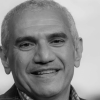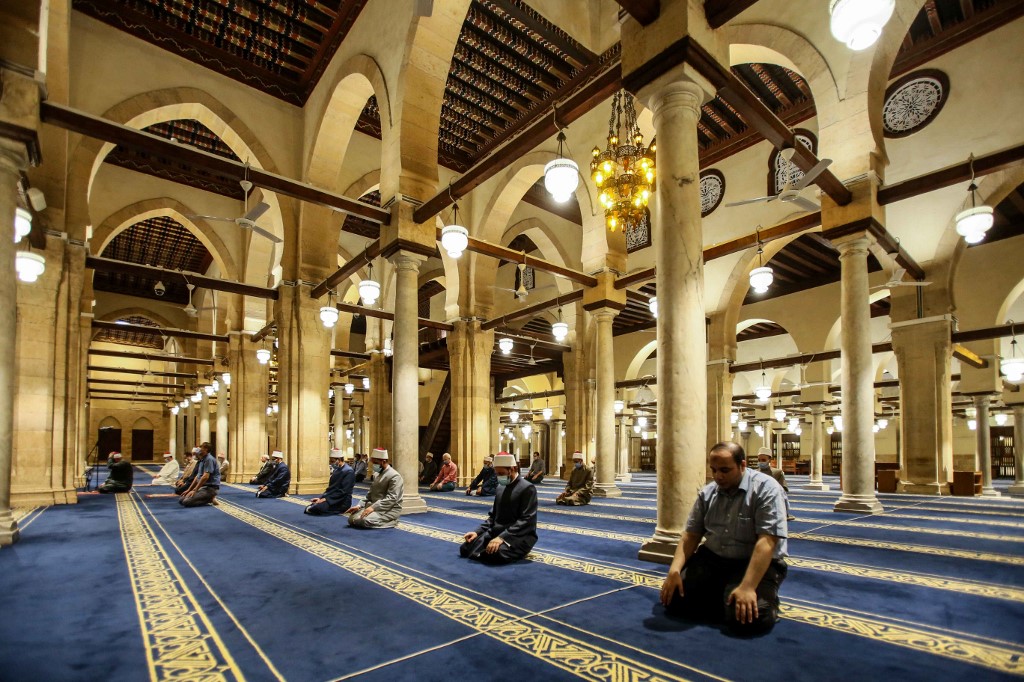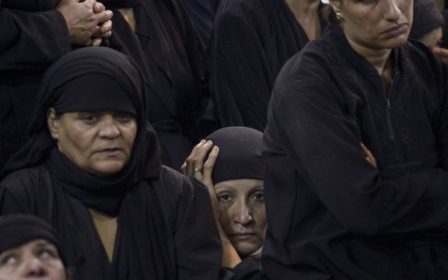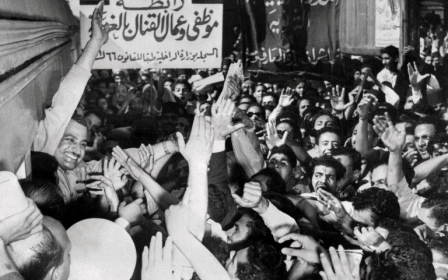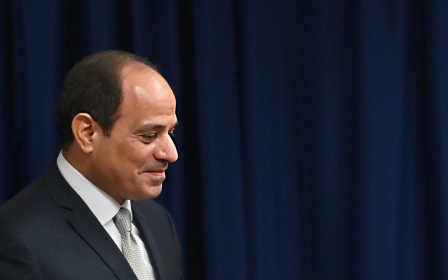Egypt: The politics of reforming al-Azhar
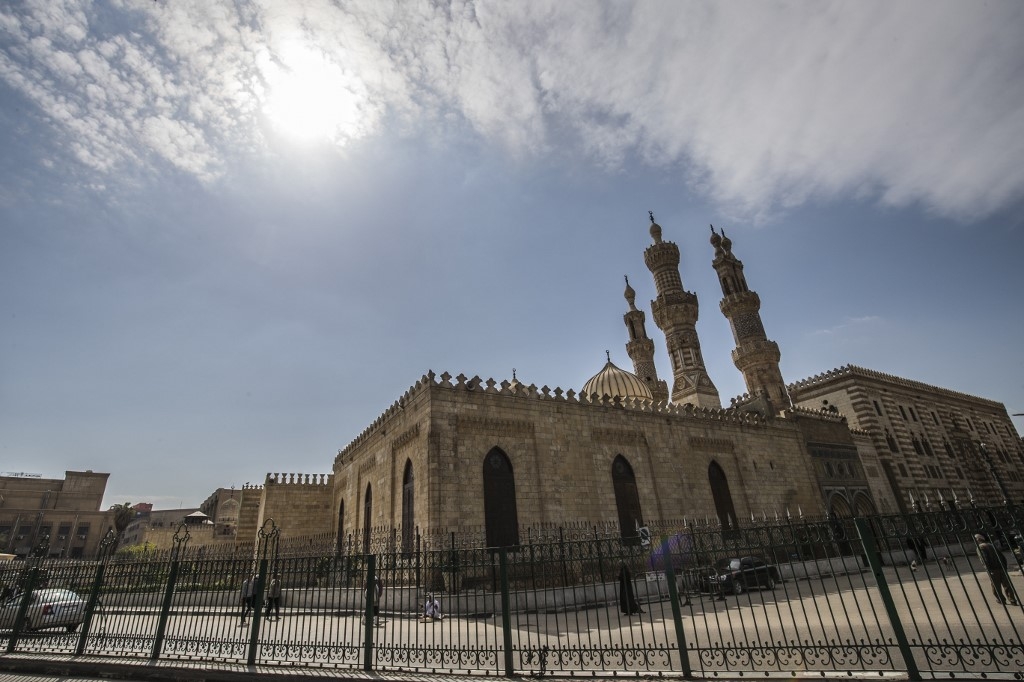
Egyptian President Abdel Fattah el-Sisi and his cultural allies among the secular elite, including Gaber Asfour, the former culture minister, are convinced that the key to Egypt's progress lies in religious reform. Indeed, fighting religious extremism was the central justification for the 2013 coup and the bloody events and mass political repression that followed in its wake.
In the heady days after the coup, and in the 2014 constitutional amendments that came to solidify the coalition that ousted former President Mohamed Morsi from office, al-Azhar was rewarded with important powers over the public teaching of Islam in Egypt, even if it was not given any formal role in the legislative process.
Perhaps most importantly from its perspective, it was given a degree of institutional autonomy over its own affairs that was unprecedented since the days of former President Gamal Abdel Nasser.
Updating the books
Yet many secularists in the Sisi coalition had long been suspicious of al-Azhar's role in Egyptian life, and shortly after the coup, they engaged in public campaigns criticising the inflexibility of al-Azhar's curriculum and its failure to update its books to prepare students for the challenges of modern society.
New MEE newsletter: Jerusalem Dispatch
Sign up to get the latest insights and analysis on Israel-Palestine, alongside Turkey Unpacked and other MEE newsletters
The popular press seized on discussions in fiqh works dealing with seemingly bizarre questions - such as the permissibility of cannibalism when a person is faced with possible death from starvation - to argue that al-Azhar's curriculum was itself the cause of religious extremism, and that it needed to reform its areas of study in order to defeat "religious extremism".
The real issue, however, is not 'reform' as such, but the different visions motivating the calls for reform, and the desired metric by which reform is determined to be a success or a failure
Why al-Azhar chose to support the coup rather than stay neutral or support Egypt's only freely and fairly elected president may always remain a mystery, but it was not long after the coup that Sisi, too, began to lose confidence in al-Azhar, discovering that, under Sheikh Ahmad al-Tayyeb's leadership, it was not the pliant agency willing to do his bidding in the fashion of all other state bodies.
This led Sisi and his supporters to begin a process intended to strip al-Azhar of many of its powers. These efforts have recently culminated in a new bill that elevates the Dar al-Ifta religious authority to the functional equivalent of a ministry under the control of the president and outside the supervision of al-Azhar. After al-Azhar publicly and strenuously voiced its opposition to this bill, the Egyptian parliament recently decided to withdraw it. Whether it will every be passed is unclear.
Meaningful change?
The prevailing narrative suggests that these measures, if adopted, will successfully strip al-Azhar of its constitutionally designated role, and of meaningful power over the regulation of the religious life of Egypt's Muslim community. I have little doubt, if eventually passed, that it would succeed in giving the newly constituted Dar al-Ifta greater formal powers in the Egyptian state, but I am sceptical that it would meaningfully change al-Azhar's role in Egyptian society, be that role beneficial or baneful.
Al-Azhar presides over a massive educational system that starts from kindergarten and runs through doctoral programmes in religious and secular education. Its social role in Egyptian culture and education is too deeply entrenched for formal changes - such as who appoints the official mufti - to change this reality.
There is also a tendency to exaggerate the role of al-Azhar as an actual religious guide to daily life in Egypt. With increasing literacy and the widespread publication of religious literature, it has been several generations now - for better or worse - since scholars, such as those trained in al-Azhar, have enjoyed a meaningful monopoly on religious teachings.
Reforming Islamic education generally, and the education offered by al-Azhar specifically, has been a contentious topic in Egypt for well over a century. The real issue, however, is not "reform" as such, but the different visions motivating the calls for reform, and the desired metric by which reform is determined to be a success or a failure.
Internal reformers - scholars such as Muhammad Abduh, for example - have championed reform of its curricula to make its education more dynamic, critical and effective in helping to articulate a comprehensive Islamic vision for a modern Egyptian society that is thoroughly Muslim.
Protecting the hyper-privileged
External reformers, such as Asfour and Sisi, measure successful reform differently: the degree to which Egypt's religious culture, specifically among its Muslims, is successfully domesticated to the vision of its ruling elite. For both Asfour and Sisi, although for radically different reasons, Islam needs to be reformed so that its relevance is limited to private expressions of piety.
That an intellectual such as Asfour could believe that Sisi was an ally in this project recalls the relationship of the great German philosopher Immanuel Kant to the enlightened despot of his era, Frederick the Great of Prussia. Needless to say, Asfour is no Kant, and Sisi is certainly no Frederick the Great.

That al-Azhar needs radical reform brooks no dispute. But the same can be said about every single public institution in Egypt. There is no public institution in Egypt that does not suffer from backwardness, mismanagement, corruption and dysfunction. That is the fully predictable result of a state that has abandoned any serious plans for national development for more than two generations.
There is no evidence that the Sisi regime has changed course on this front and committed itself fully to restructuring national priorities towards investment in the physical, social and human infrastructure so desperately needed by the vast majority of Egypt's people. Instead, Egypt's limited public resources are being spent on an ever-narrowing class of elite Egyptians, as if the government's only role is to protect a hyper-privileged one percent, while leaving the rest to fend for themselves.
The attacks on al-Azhar must be seen in this light. Al-Azhar is the most prominent public institution with deep social roots outside the modern Egyptian state. To the extent that the Egyptian state itself views the Egyptian people and their culture as problematic, al-Azhar is a convenient scapegoat on which to lay blame for Egypt's consistent failures to develop.
Learning to ride the donkey
The popular expression "he couldn't ride his donkey, so he beat the hell out of the saddle" encapsulates perfectly the policy of Sisi and his secularising allies towards the reform of al-Azhar. As Sheikh Tayyeb rightly pointed out at the recent high-profile conference organised by al-Azhar to discuss the question of religious reform, despite a century's worth of public secularisation, Egypt still can't manufacture tyres, to say nothing of advanced industries.
The Egyptian state and its secularist allies certainly can destroy what is left of al-Azhar, but that will not solve their repeated failures to promote successful development strategies.
Without such a commitment, no amount of state-sponsored reform of al-Azhar will achieve its stated goal of promoting a responsible public Islamic discourse
Egyptians would be better off if the country's rulers and the narrow circle of elites surrounding them focused on effective development policies, rather than engaging in arcane theological and jurisprudential disputes that have little direct effect on Egypt's woes.
Indeed, they might find that if they focused on learning to ride the donkey and stopped beating the hell out of the saddle, Egypt's religious problem may very well take care of itself, as part and parcel of a broad improvement in the affairs of the people.
Without such a commitment, no amount of state-sponsored reform of al-Azhar will achieve its stated goal of promoting a responsible public Islamic discourse.
The views expressed in this article belong to the author and do not necessarily reflect the editorial policy of Middle East Eye.
This article is available in French on Middle East Eye French edition.
Middle East Eye delivers independent and unrivalled coverage and analysis of the Middle East, North Africa and beyond. To learn more about republishing this content and the associated fees, please fill out this form. More about MEE can be found here.


